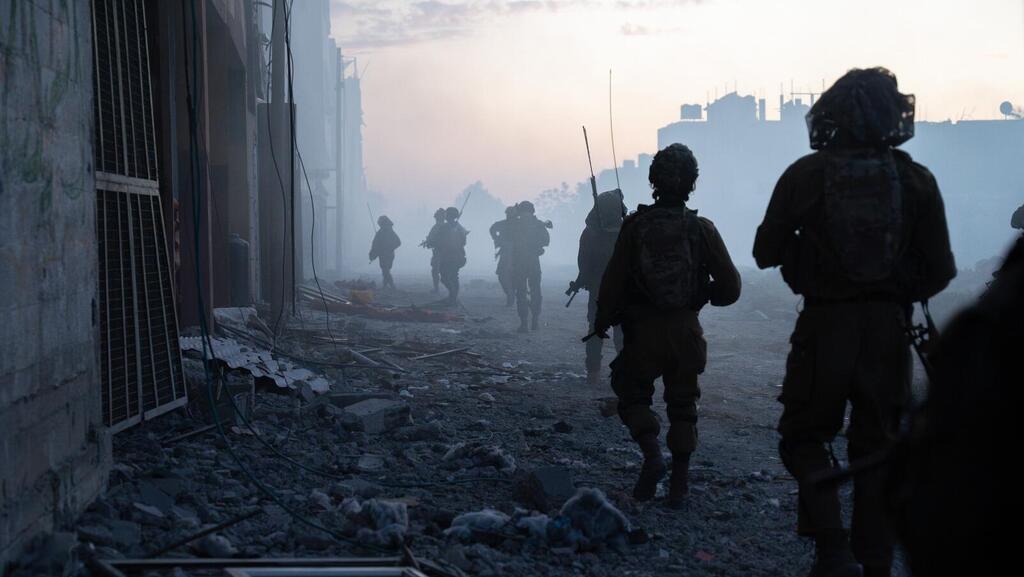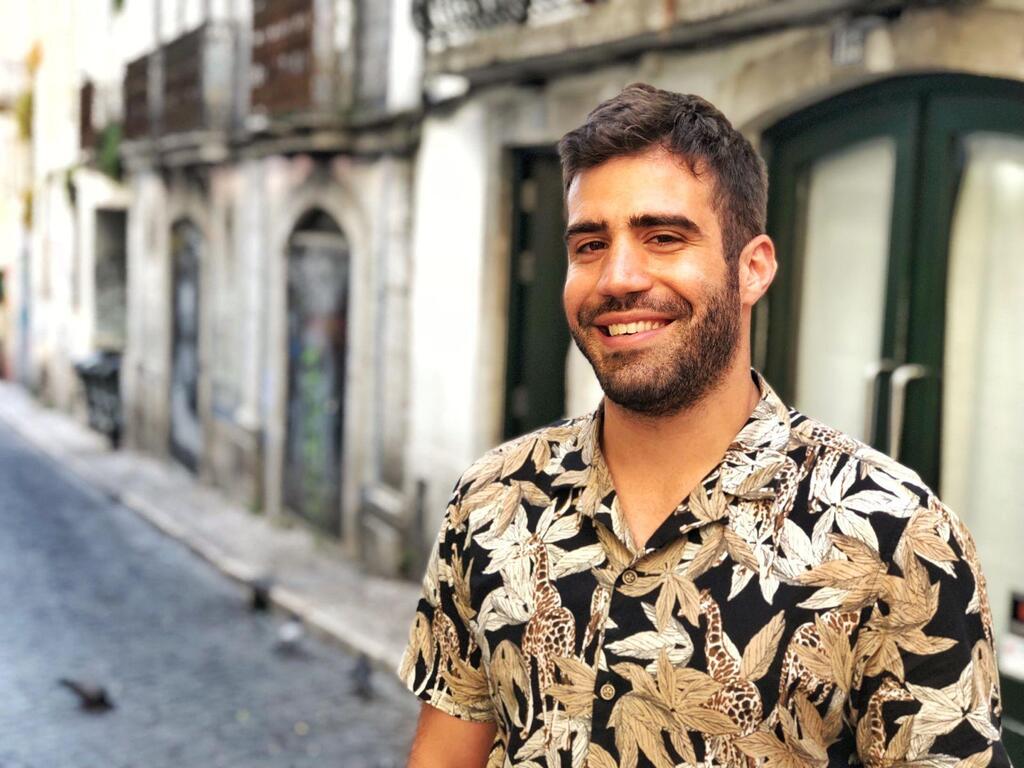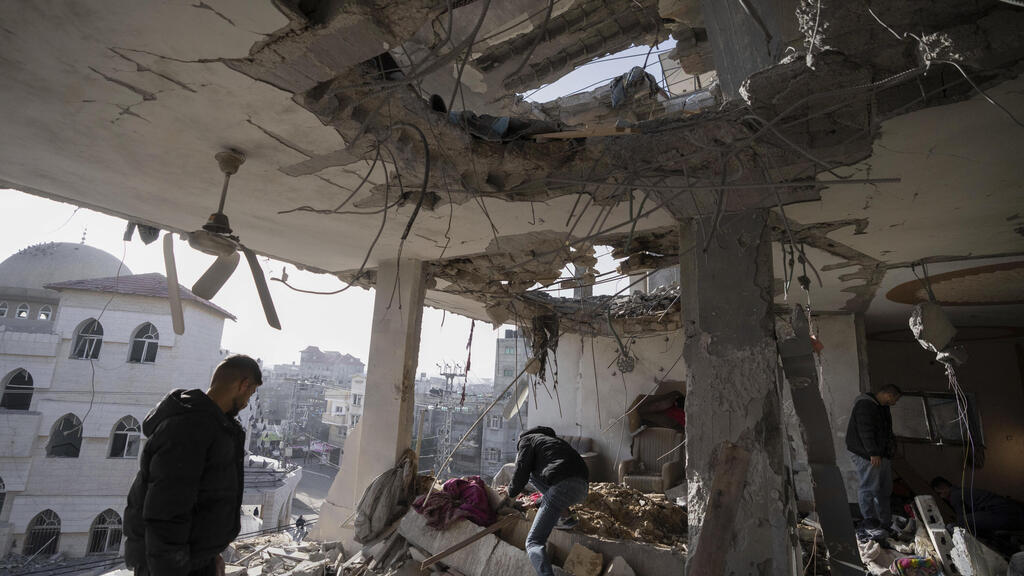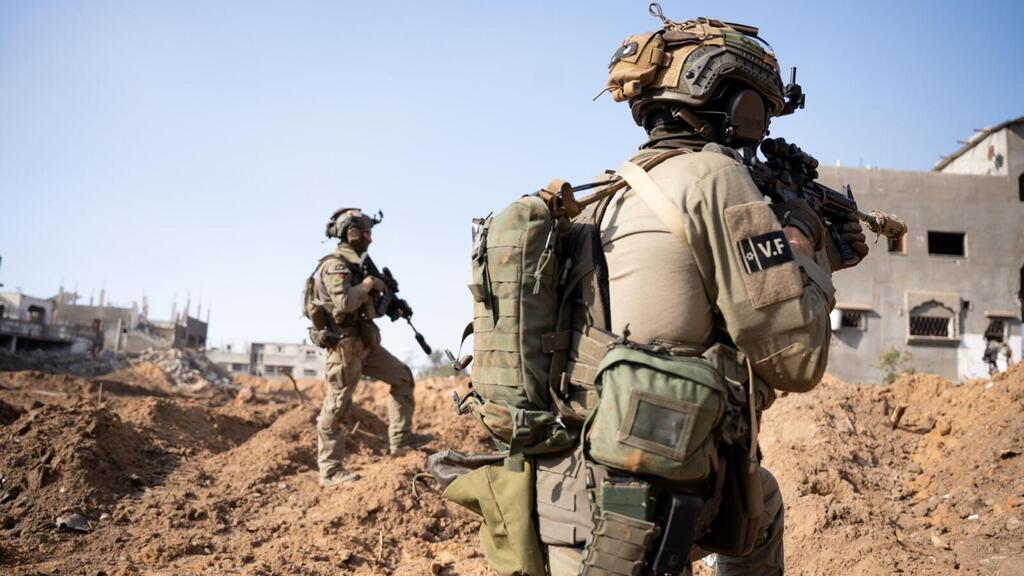Getting your Trinity Audio player ready...
There's no need for helmets and uniforms; just a keyboard and determination. A creative marketing and content marketing company, found itself joining Israel’s war effort after October 7. Yuval Halevi, 31, one of the founders of Growtika and GuerrillaBuzz, decided to use the methods the company developed over the years to make a real change to the effect of Israel’s public diplomacy.
More stories:
"I was looking into how I could contribute to the war effort," he says. Halevi's company has developed new capabilities to identify and extract information from social media platforms, with an emphasis on English-speaking communities.
The company not only succeeds in locating information but also in identifying the wording and phrases found in the headlines of articles about the war that cause them to go viral. In other words, what makes an article repeatedly shared and quoted by users, and what leads another article to sink into anonymity, or appear less attractive and appealing to read?
Halevi made a direct appeal to English-language media outlets in Israel, including Ynetnews, offering them to share his knowledge to expand the dissemination of information which is vital, in his opinion, for the fight for global public opinion, and significantly wider distribution.
"I thought that if we could help the Israeli news effort gain this information, not only would the chance that their content would become viral increase significantly, but they would also know how to create content tailored to the information age on social media from scratch," and according to Halevi, "it's about nuances."
"It's similar to the way the military has intelligence-gathering units that assist it and the government in making more informed decisions"
"It went much better than I thought,” he says. Since the start of the war, Halevi has analyzed hundreds of online communities and thousands of viral posts, sending his conclusions and recommendations to editors at several pro-Israeli news sites.
“It's similar to the way the military has intelligence-gathering units that assist it and the government in making more informed decisions. In the same way, we’re trying to provide news sites with a real-time snapshot that they didn't have before. Following our recommendations, they know how their content is received in online communities and what to do to increase the chances of it going viral.”
Halevi has examples of articles before and after his team's recommendations and points to an article that garnered 979,000 readers and another with 2.5 million readers due to their guidance. These are just two examples out of hundreds of articles that have surpassed 350 million views since the beginning of the war. “It's working really well,” he adds.
Welcome to the modern era
However, ultimately, Israel’s main issue when it comes to public opinion and diplomacy is also rooted in the long-standing neglect of the international arena in the discourse on the Israeli-Palestinian conflict, which currently takes place from a predominantly Palestinian perspective throughout the globe.
Israel’s main issue when it comes to public opinion and diplomacy is also rooted in the long-standing neglect of the international arena in the discourse on the Israeli-Palestinian conflict
Yet, in contrast to previous operations where it seemed that Israel had given up without a fight, it now seems more and more Israelis and media organizations are willing to fight back. However, the one question that’s still unanswered is what can the country do to change this equation.
"That's a good question," Halevi says. "The equation can change very quickly. It only takes one mistake or action on our part that seems wrong in the eyes of the world for us to lose a lot of legitimacy. I can say that it was most significantly seen in the case of the (Al-Ahli) hospital in Gaza.
“The IDF collected its findings there and only announced after they were certain the information was correct. On the other hand, the other side immediately published false posts that received millions of views and wide media coverage on all major websites.
5 View gallery


"It’s important to understand that from the world's perspective, the impact and shock of the events of October 7t are beginning to fade"
(Photo: IDF Spokesperson's Unit)
“This made people around the world think that we were the ones who bombed the hospital, and this news led thousands in Muslim countries to the streets and caused millions of people worldwide to 'lose' their empathy toward us.
“The IDF came out with evidence showing they did no such thing, but only after many hours had passed, and by then, significant damage had already been done in terms of public opinion. The IDF's evidence and the media's clarification and apology didn’t garner the same buzz," he explains.
"The IDF collected its findings there and only announced after they were certain the information was correct. On the other hand, the other side immediately published false posts that received millions of views and wide media coverage on all major websites"
"What I believe is lacking for Israel, for example, is a quicker response to such cases. I understand the desire to verify things, but maybe there was a need to release a statement with initial findings. For instance, issuing a statement saying it wasn’t Israel and that investigations are underway is better than saying nothing for hours. It’s much harder to fix this later on."
So, if we started to understand this, what have we done wrong until now, and how can we do them right from now on?
"In my opinion, things we did wrong until now include censoring all information coming from the Israeli side in the war in Gaza, including information that could benefit us in terms of public opinion, and ineffectively using dozens of civil projects that have been established for this purpose, which could help tremendously."
"Gazans have internet access, and when videos and photos are taken there, they’re immediately shared by thousands of Muslims worldwide. It’s important to understand that from the world's perspective, the impact and shock of the events of October 7t are beginning to fade.
“Currently, every photo and video that comes out of Gaza shows casualties and destruction, and all this works against us. The content that presents us positively in Gaza consists only of official videos and photos released by the IDF. It feels like this isn’t being considered at the political level. It's a matter of decision.
A picture is worth a thousand likes
If the government understood its value, it could have made a significant difference. For example, there was an article in Ynet reporting on Hamas using women and children as human shields during the fighting. I'm sure some videos show that so why aren’t they being released? Many soldiers document similar things; we need to start releasing it," he says.
"When it comes to civil projects, there are hundreds of initiatives spreading pro-Israeli information on social media and reporting on anti-Israeli profiles spreading fake news. If the government supported and coordinated all these projects together while connecting them, these efforts would be much more effective."
"Anyone involved in fighting for Israel’s public diplomacy feels that, numerically, we’re not at a disadvantage. There are almost 2 billion Muslims across the world, and the sentiment in the Muslim world is clear in support for Gaza and against Israel. This requires us to work smarter and find ways to bolster ourselves.
“If they’re many and we’re few, how can every action we take be much more impactful? Many civic projects, such as Words of Iron, help with that precisely. They make each of our actions 'more valuable' and much more effective in producing good content and distributing it.”
You focus on English-speaking populations; do you think Israel must prioritize other populations in its effort for international public opinion?
“We need to focus on populations taking part in the global decision-making circle. I think English-speaking countries and Western Europe are the main targets. But it requires resources. My main focus is on English-speaking communities, but I wish someone from Israel would make efforts in other languages.
“I would be more than happy to share information and guidance. I want to expand my work; if other websites want to improve their exposure abroad, I’d be happy to help them."






